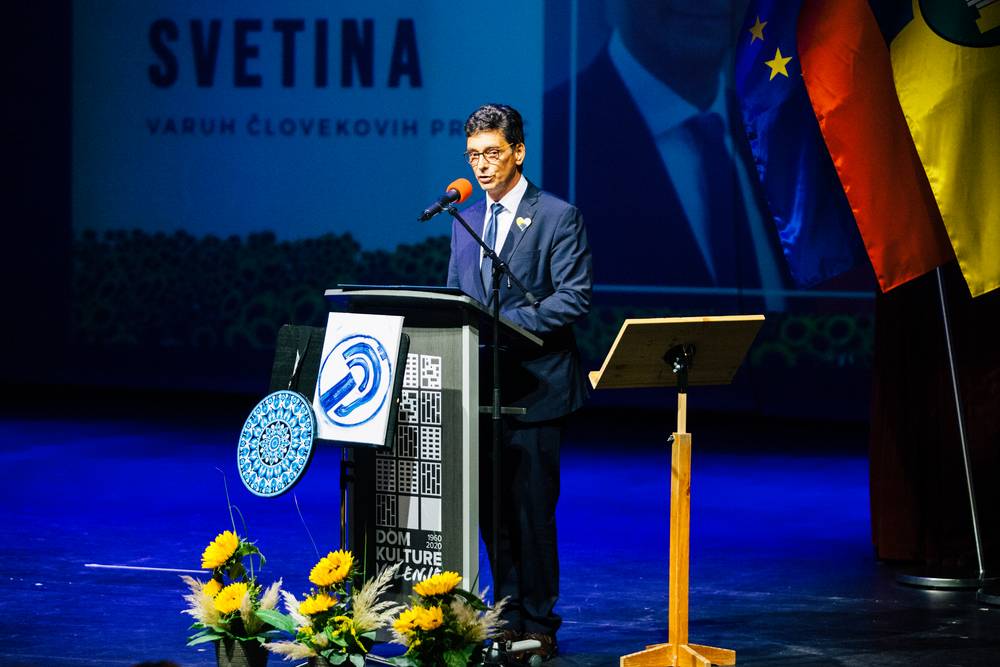On 30 September 2023, Ombudsman Peter Svetina addressed the participants of the main national event in the celebration of the International Day of the Deaf and Hard-of-Hearing and the 60th anniversary of the Velenje Intermunicipal Society of the Deaf and Hard-of-Hearing.
He stressed that according to the data of the World Health Organization, every tenth person on this planet has a hearing impairment. “And that is a lot. Even more, according to some estimates, about 12 per cent of people in Slovenia have disabilities. This number could, considering the trends recorded by the World Health Organization, even be slightly higher. Primarily due to the ageing population, where we encounter an increasingly high number of older people with disabilities and increasingly longer life expectancy of ageing people with disabilities, and also due to the more frequent occurrence of chronical illnesses. I am afraid that in a few years the numbers will be even higher, since even today experts are finding what a deep impact the coronavirus pandemic had on the health of the population,” he added.
The Ombudsman estimates that the equal inclusion of the deaf, deafblind, and other people with disabilities and the creation of an inclusive living environment for them is a wound we are healing too slowly. He finds that there remain many areas in which we need to take decisive steps forward for everyone to feel the realisation of the constitutional provision that Slovenia is a social state, and enjoy other constitutionally guaranteed rights. Ombudsman Svetina enumerated some of the numerous problems the deaf, deafblind, and hard-of-hearing face. They are discriminated against and stigmatised in many areas, and face numerous challenges in the educational system. In schools, deaf students still do not have the subject of sign language, since the systemic attention to its development has still not been arranged, despite its inclusion in the constitution. “The entry into the constitution is by all means important, but is only the first step towards the full realisation of rights. The provision of these rights in practice is crucial. As the Ombudsman I regularly call on the government to prepare bylaws as soon as possible and systemically arrange the development of Slovenian sign language and the language of the deafblind. Hence, it will indirectly also take care of their higher educational structure, employment options, and improve their socio-economic position,” emphasised the Ombudsman at the celebration.
The Ombudsman thanked all striving to bring about changes so that the rights and fundamental freedoms of the deaf, deafblind, and other people with disabilities are fully realised. Peter Svetina believes that their actions leave a priceless mark in the mosaic of our joint efforts to ensure that each and every one of us will be a respected, equal, and esteemed member of society.

![[Translate to English:] Varuh Svetina na dogodku gluhih in naglušnih [Translate to English:] Varuh Svetina na dogodku gluhih in naglušnih](/fileadmin/_processed_/2/8/csm_Svetina_gluhi_Velenje_5a723b7d6e.jpg)